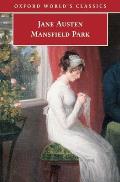After spending several months roaming around in modern literature the last two weeks back in the classics have seemed by comparison exceptionally laborious. As my wife, who is reading the same novel, will point out to you, reading Austen is more work than pleasure at times. It is not so much that she uses words unfamiliar to us or that the situations she paints are beyond our immediate experience. Truly, the themes of Austen's novels are as familiar as any made-for-TV movie. Instead it is her language which can tend to wear one out. Austen crafts sentences that are so winding and twisting at times that one imagines taking them from the book and wrapping them several times around the Christmas tree. Anyone who has read Austen with care even once should be credited for having passed eyes over the words at least twice in repeated answer to the question, "What did she just say exactly?"
Prolixity aside, Austen's descriptions of the inner workings of the human mind and its motivations are enthralling. Austen gives an almost Dickensian level of attention to her characters and at the end of Mansfield Park one feels like one knows Fanny Price like a sister. Among all of Austen's characters I find Fanny the most personally relatable. Her simultaneous self-doubt and self-assurance are hallmarks of the human experience and I can see myself in exactly her position. It is with regret that I found in the literary criticism the consistent theme that Fanny is a character to be disliked. Her virtue is seen as a pall over the actions of the other characters. Her adherence to social norms is an impediment to the enjoyment of those around her. How sad it is to find that the face in the mirror is not the same seen by society.
In summary, I consider MP one of Austen's finest while the majority of commentators seem to agree on exactly the opposite. Austen's other novels paint life in a sort of blissful haze while MP is frankly and honestly realistic about all the foibles of humanity. Of course in characteristic style her final chapter wraps everything tidily up in happiness for all concerned but the reader must forgive those 10 pages out of 320 which serve to give her readers of the time (and today) what they expect for their heroine.

No comments:
Post a Comment